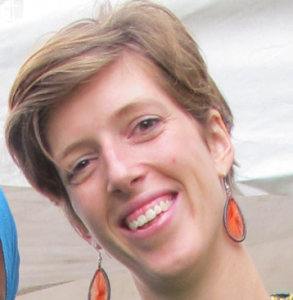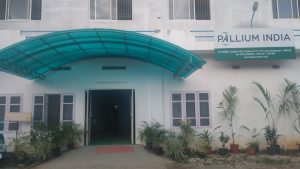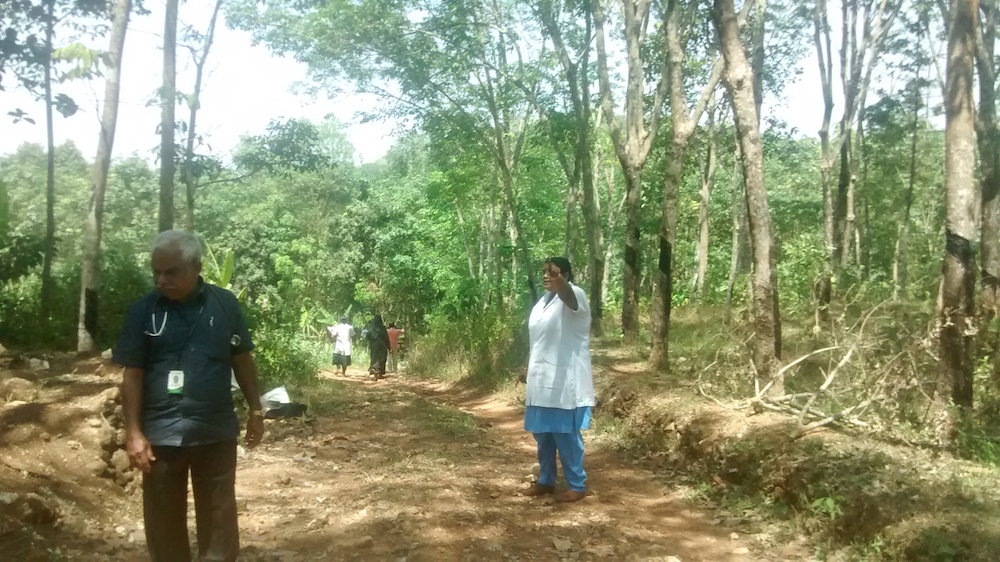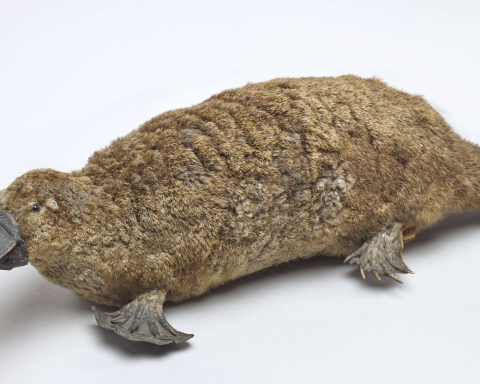
Nandika has a huge, beaming smile. She smiles often and easily, and you find yourself smiling back in return. Before she was known to Pallium she lived in a makeshift tarpaulin shelter with her 13 year old son Harshad, sleeping on a mat on the ground and relying on the kindness of neighbours to bring them food. There was zero financial support; Nandika’s husband had left her several years ago because of her illness. Nandika relied on Harshad to draw up and inject her insulin because she was almost blind in both eyes due to cataracts, and the lack of any refrigeration meant the insulin sometimes overheated and degraded. When I first met her she had been without insulin for three days for this reason. Her walking is limited due to severe Charcot’s arthropathy and a deep ulcer on the base of her foot that has been chronically infected for the last four years, needing intermittent hospital admissions for intravenous antibiotics.
Nandika has type 1 diabetes and is 42 years old. She lives in Kerala in India, the country with the inauspicious title of having the most people with diabetes in any country in the world. It is also a country that has some of the world’s most prestigious international diabetes institutes, and yet situations like that of Nandika’s are not uncommon.
They champion a broad concept of palliative care, in many ways broader than that which we are familiar with in the West.

In India, serious health-related suffering is tragically frequent, often as a result of severely limited access to opioid analgesia but also commonly due to complications that could have been prevented with earlier medical input or more consistent follow up. With these patients, as Dr Rajagopal explains, “the existing health system is not able to cater to their suffering” and as such, Pallium steps in. As a result, their patient population is diverse, including patients with advanced cancers, strokes and frailty, as well as those like Nandika, with complications of diabetes and vascular disease, and significant numbers with paraplegia or tetraplegia sustained following road traffic accidents or falls during coconut and banana tree harvesting.
A doctor in a primary health care centre catering to around 20-30,000 people will see between 100-300 patients a day.
In August I returned from my out of programme year to ST3 training in Sheffield. I now work within a skilful multidisciplinary team where health care assistants conduct pre-diabetes counselling, clinical pharmacists perform diabetic annual reviews and specialist foot care teams are just a phone call away. Despite our own pressing primary care crisis, my recent experience of healthcare in Kerala stands in stark contrast to provision in this country, and further accentuates the multiple systemic challenges that Pallium are battling on a daily basis.
Thanks to the dedicated work of Pallium, Nandika now has her own apartment with a fridge. Her vision has been dramatically improved following bilateral cataract surgeries, and a pair of glasses, which means she can administer her own insulin and Harshad can now attend school, significantly increasing his own life opportunities. Her glycaemic control is improving and she has ongoing foot and wound care with the input of a diabetic foot specialist.
These positive steps are a testament to the truly holistic palliative care provided by the team at Pallium, and I feel very privileged to have had the opportunity to work alongside colleagues who showed such compassionate commitment to their patients.
Names have been changed.
1. International Association for Hospice and Palliative Care. IAHPC Projects: Consensus based definition of palliative care. Accessed on 30th August 2019. https://hospicecare.com/what-we-do/projects/consensus-based-definition-of-palliative-care/








